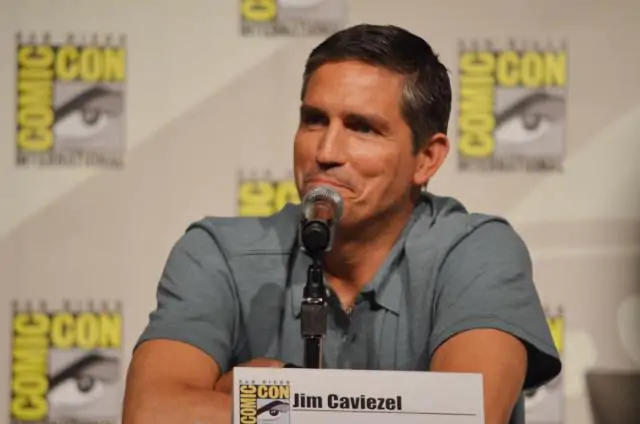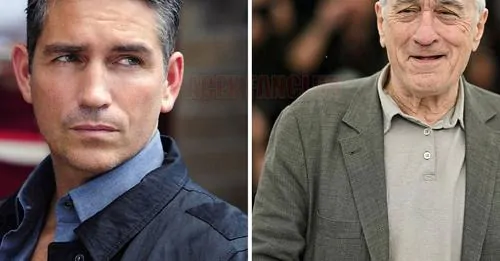In an unexpected development, actor Jim Caviezel has sparked controversy by openly refusing to collaborate with Robert De Niro, calling him an “awful, ungodly man.” Caviezel’s statement has sent shockwaves through Hollywood, igniting debates about the role of personal beliefs in professional partnerships. His bold stance brings into focus the intersection of faith, values, and the often complex world of filmmaking.
Jim Caviezel, known for his portrayal of Jesus in The Passion of the Christ, has long been vocal about his deep Christian faith and his commitment to roles that reflect his moral values. On the other hand, Robert De Niro, a legendary figure in the film industry, is recognized for his diverse body of work and his outspoken political and social views. Caviezel’s refusal to work with De Niro sheds light on the inevitable clashes that can arise when personal convictions collide with the demands of a collaborative art form like filmmaking.

During a recent interview, Caviezel made his position clear when asked about the possibility of working with De Niro. His response was firm: “I won’t work with Robert De Niro. He’s an awful, ungodly man.” The strong wording of his statement drew immediate attention from both the media and the public, raising questions about what might have driven Caviezel to such a conclusion.
While Caviezel did not elaborate on specific incidents or behaviors, it’s clear that his decision stems from a conflict of values. Given his outspoken Christian beliefs and the emphasis he places on selecting roles that align with his faith, it’s reasonable to assume that he views De Niro’s public persona or past actions as incompatible with his own principles. The vagueness of Caviezel’s remarks has only fueled curiosity, with many speculating about the underlying reasons for his disapproval.
Caviezel’s refusal to work with De Niro has provoked mixed reactions. Some see his stance as an admirable commitment to his personal values, a rare display of integrity in an industry often seen as morally flexible. Others, however, question the wisdom of making such a public declaration, suggesting that it could close doors to future opportunities and create unnecessary divisions within the film community.
This situation raises broader questions about how actors navigate their personal beliefs in a professional environment like Hollywood, where collaboration is key. Hollywood has long prided itself on fostering a diversity of ideas and perspectives, yet the entertainment industry is increasingly seeing actors take stands on personal and moral grounds. Caviezel’s refusal to compromise on his values reflects a growing trend where actors assert their principles, even if it comes at a potential cost to their careers.

The long-term impact of Caviezel’s decision on his career remains uncertain. While his stand may resonate with like-minded individuals and fans who admire his dedication to his beliefs, it may also lead some industry professionals to view him as difficult to work with. The entertainment world has seen similar instances where actors’ public statements have both advanced and hindered their careers, leaving Caviezel’s future collaborations in question.
Caviezel’s Christian faith has been a defining feature of his career since The Passion of the Christ, a film that placed him at the center of religious and cultural discussions. His conflict with De Niro highlights the difficulties actors face in maintaining personal integrity in a profession filled with differing perspectives and values.
Beyond the specifics of Caviezel and De Niro, this incident prompts reflection on the broader implications for Hollywood. As more actors choose to vocalize their convictions, the industry may see a shift in how personal values shape professional relationships. Caviezel’s bold stance is a testament to how deeply individual beliefs can influence decisions, even in the highly collaborative and diverse world of filmmaking.
Ultimately, Jim Caviezel’s refusal to collaborate with Robert De Niro underscores the challenge of balancing personal ethics with professional obligations. His decision adds to a larger conversation about the role of values in Hollywood, where standing firm on one’s principles is becoming an increasingly public act.

